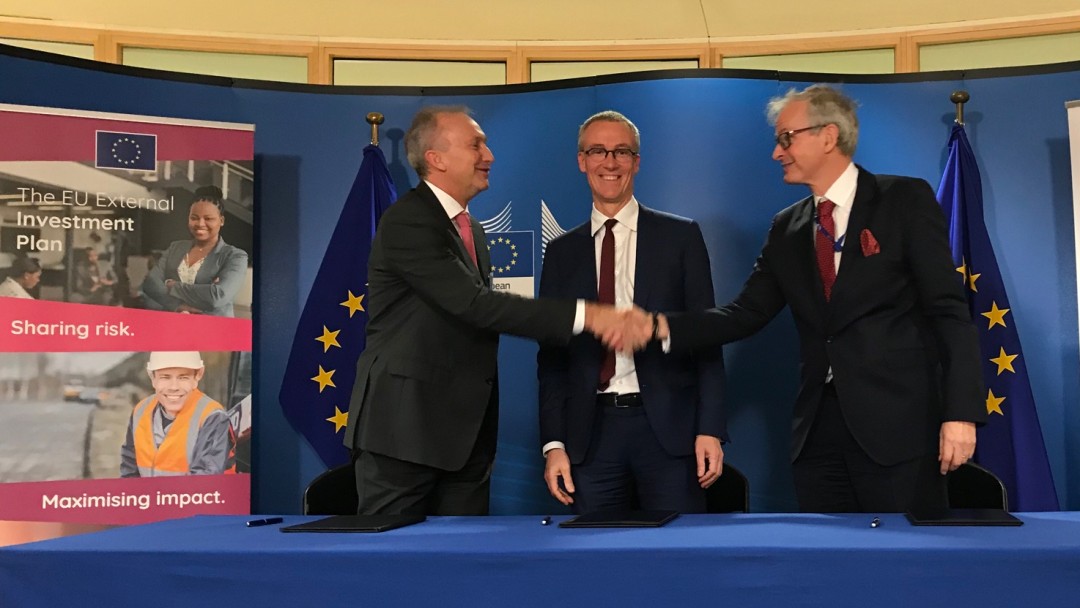News from 2020-01-22 / KfW Development Bank
Risks for energy projects in Africa to be hedged
Signing of the first EFSD guarantee agreement

The population in Africa is growing rapidly – by 2040 the figure will rise by 800 million to more than 2 billion people. This also fuels the appetite for energy – which is preferably to be covered from renewable energy sources. Around 600 million people in sub-Saharan Africa today have no access to electricity, and in most countries, electricity is only supplied for a limited time each day. Annual investments of around USD 20 billion are needed to develop energy infrastructure.
This is the context for action by the European External Investment Plan (EIP), of which KfW is a part. The EIP aims to mobilise an investment volume of up to EUR 44 billion in Africa and the EU’s neighbourhood regions by 2020. The goals are to reduce the root causes of migration, to mitigate climate change and promote the private sector. The EIP builds on the familiar EU blending facilities and provides an additional risk assumption facility. The EIP includes an investment fund, the European Fund for Sustainable Development (EFSD), which features, among other things, a new guarantee instrument (EFSD Guarantee) – and this includes the African Energy Guarantee Facility.
The first EFSD guarantee agreement was signed by KfW in Brussels on 22 January. KfW can thus become a guarantor within the African Energy Guarantee Facility (AEGF) – the reinsurance capacity of the facility can therefore be increased to USD 1 billion. This will facilitate access to affordable credit risk insurance for energy projects in Africa. In the past, underwriters had very limited capability to cover risks such as payment default or political risks. With the support of the European Investment Bank (EIB) and KfW, the African Trade Insurance Agency (ATI), in partnership with Munich Re, will provide long-term investment insurance for sustainable energy projects.
Ambitious goals: the European Commission's contribution will allow for the creation of 200 jobs and safe electricity supply for more than 400,000 people. To this end, more than 500 GWh of electricity is to be generated annually from renewable sources, thus preventing emissions of more than 350,000 tonnes of CO2 per year – over a period of fifteen years.

Share page
To share the content of this page with your network, click on one of the icons below.
Note on data protection: When you share content, your personal data is transferred to the selected network.
Data protection
Alternatively, you can also copy the short link: https://www.kfw-entwicklungsbank.de/s/enzBWrMC.CJbA
Copy link Link copied